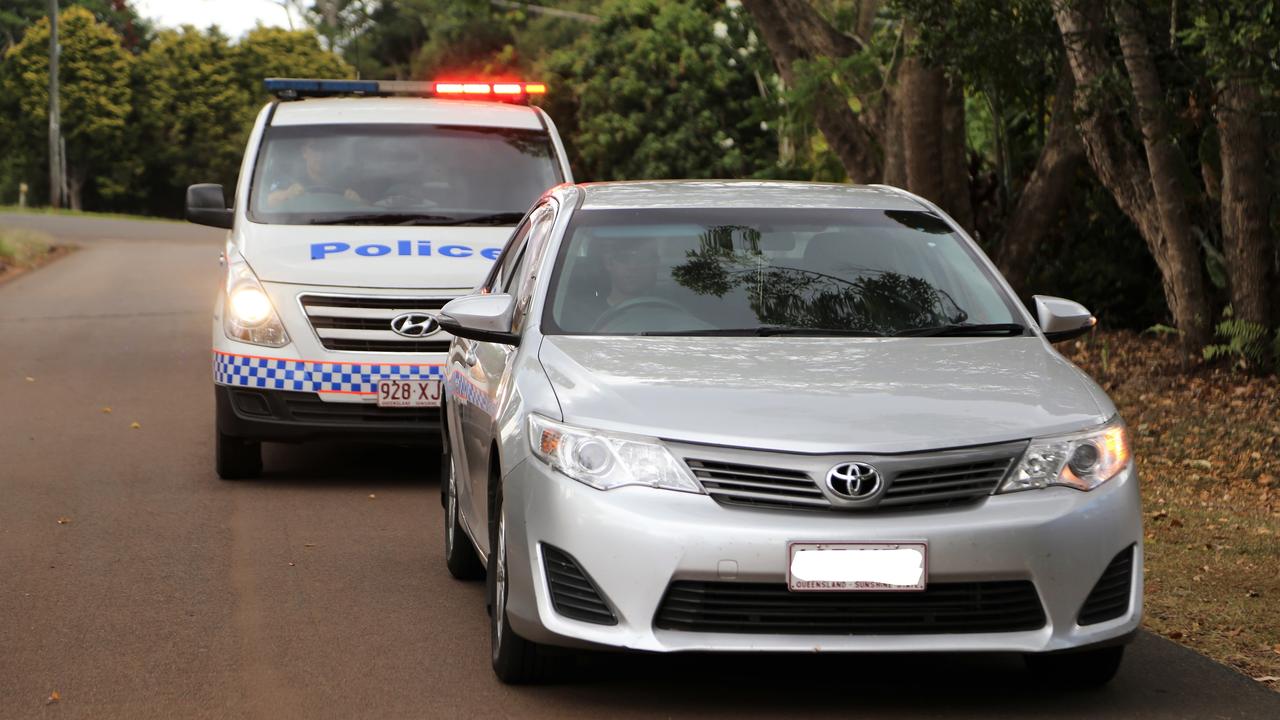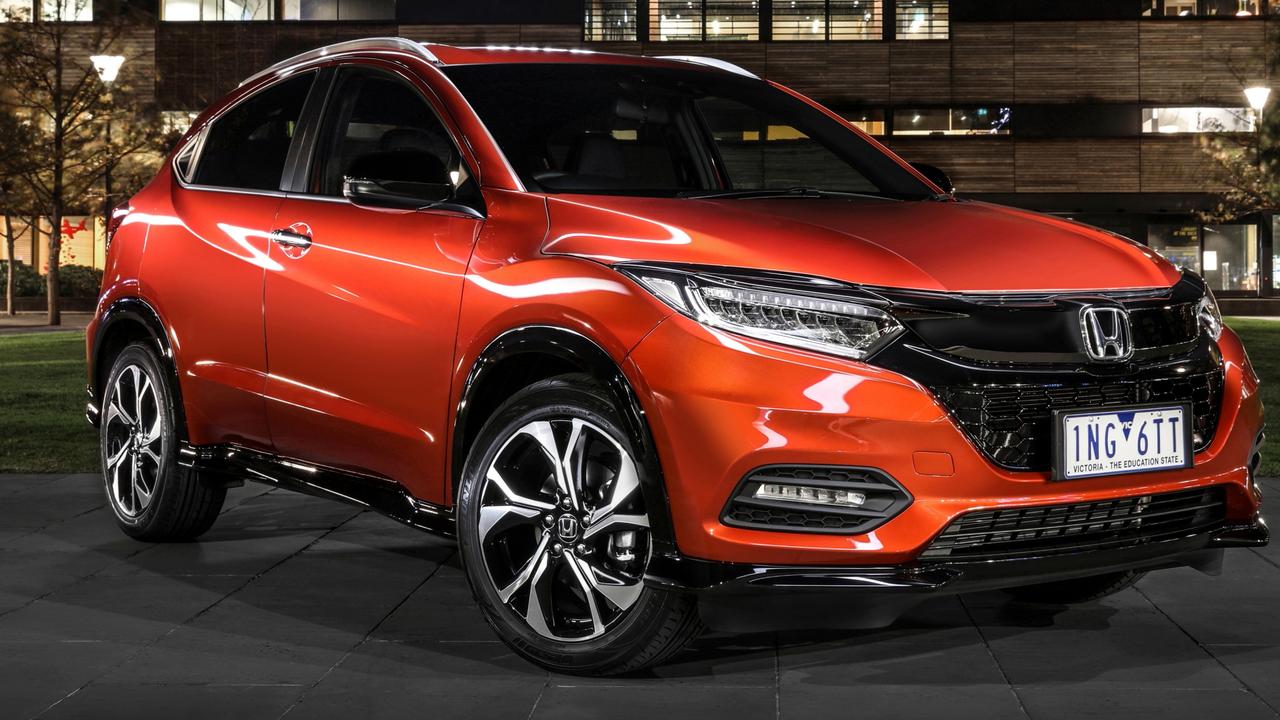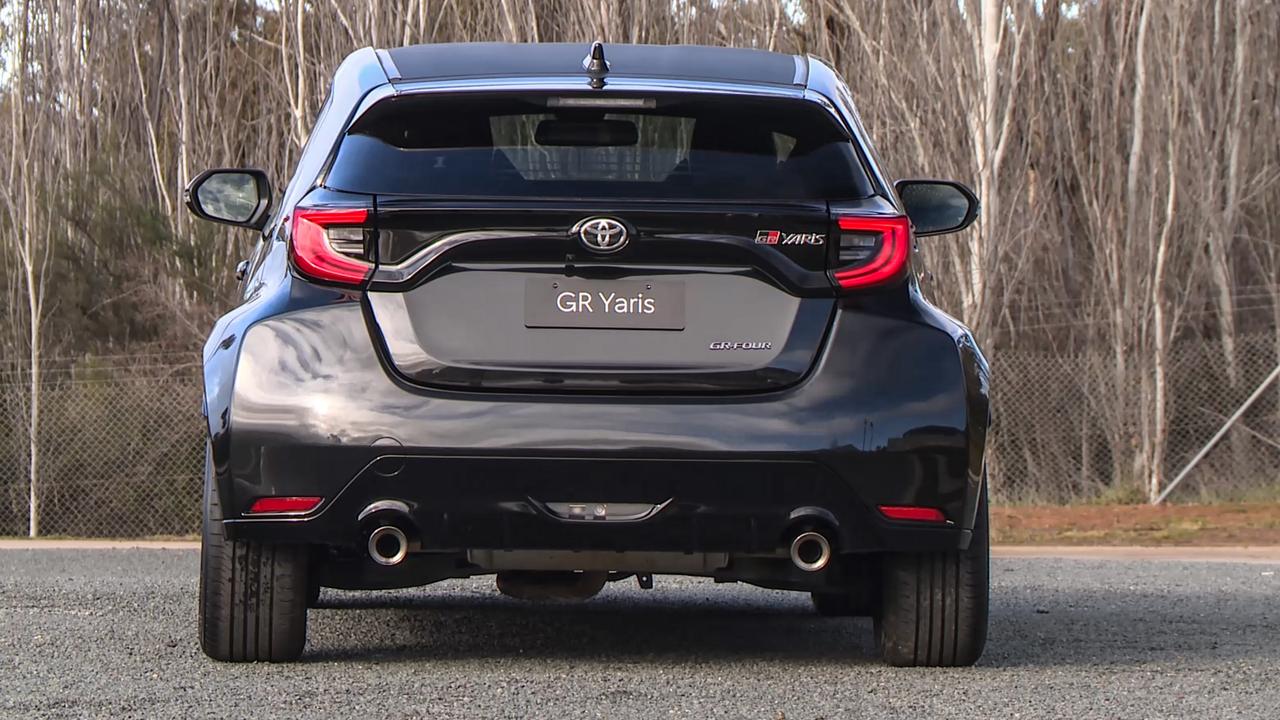Autopilot Audi will call the cops if you fall asleep at the wheel
MEET the car you can drive with your eyes closed. This Audi sedan will slam the brakes and call the police if you fall asleep at the wheel.
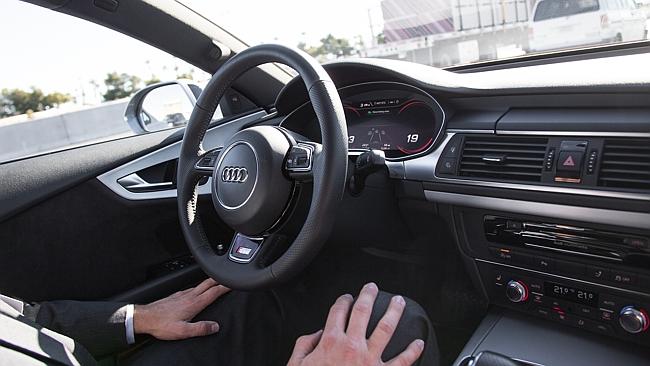
MEET the car you can drive with your eyes closed. This otherwise anonymous-looking Audi sedan will slam the brakes and call the police if you fall asleep at the wheel.
It's an experimental vehicle for now, but is yet another critical step towards the automation of the car.
Experts predict drivers could be redundant by 2030.
The latest technology can already steer around bends, keep you wandering from your lane, automatically creep forward in stop-start traffic without needing to touch the pedals - and brake suddenly if you're about to rear-end the car in front.
But hi-tech cars dotted with cameras, lasers, radars and ultrasonic sensors have created a new dilemma for the car industry.
Those inventing the technology are worried drivers might fall asleep if there's nothing for them to do.
Audi was so concerned that it did a study to find out how long it takes drivers to regain control of a car if they fall asleep; most responded in 3.5 seconds and the longest took 8 seconds.
Its latest experimental vehicle can read the road and the traffic ahead without the driver having to touch the steering wheel or the pedals.
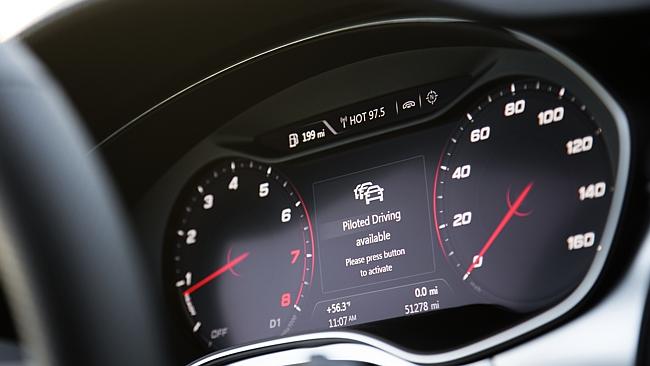
Audi installed an anti-fatigue camera under the rear-view mirror to detect when the driver nods off.
If there is no reaction after a five-second warning beep, the car will come to a stop 10 seconds after the system spots drowsy or closed eyes.
"If you're not awake after 10 seconds, there's got to be something wrong," said Dr Bjorn Giesler, the project manager for Audi's automated cars during a demonstration on the streets of Las Vegas during this week's International Consumer Electronics Show.
"If you haven't taken control after 10 seconds, the car is going to come to a complete stop and the system is calling the cops."
Audi is keen to introduce this system in the next two or three years, but its biggest hurdle may be changes to the road rules.
A convoy of police cars had to accompany the prototype car, and only qualified engineers were allowed behind the wheel.
Across town, German rival BMW demonstrated an autonomous car on a racetrack. Without driver input the car took inch-perfect lines, swerved through a slalom, and even did a perfect "drift" (a rear-wheel skid made famous by the movie The Fast and the Furious) lap after lap.
BMW says it won't introduce drifting technology on its cars but wanted to show how far the technology has progressed.
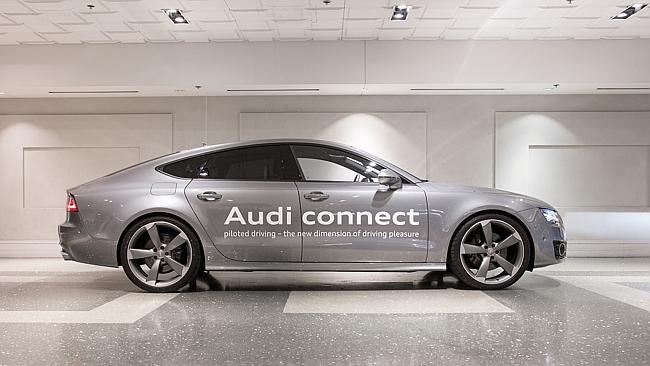
A year ago, the computer power to run Audi's experimental car took up the entire boot; the latest version has a brain the size of a laptop and processes 2.5 billion bits of information per second.
With improvements in technology, Dr Giesler says the complete automation of the car is only a matter of time.
"How long before we are in the cities (with partial autonomous technology)? I'd say 2025," Dr Giesler said.
"How long before we can actually handle all of city traffic without any human intervention? I'd say 2030 or 2040.
"City traffic is just so, so complex that's there's always going to be a situation where the driver needs to come back to the driving task.
"I don't think (technology) can handle everything the city can throw at you right now. That's going to take a long time."
Here now:
Radar cruise control, maintains a safe distance between the car ahead and matches the speed accordingly;
Automatic braking from freeway speeds - and acceleration back up to traffic and freeway speeds - when radar cruise control is activated;
Emergency braking at speeds up to 50km/h, designed to stop rear-end collisions if the driver is distracted;
Lane-wander alert, vibrates the steering wheel and/or seat cushion if the driver changes lanes without indicating;
Lane-keeping: corrects the steering and/or applies the brakes on one side of the car to pull it straight.
What's next:
By 2020:
Pedestrian-detection technology, using cameras and/or radar sensors to spot moving objects before slamming the brakes. (As a back-up, Volvo has already introduced the world's first pedestrian airbag under the bonnet near the windscreen.)
Volvo is also developing animal-detection technology. Once it perfects the system on large, slow-moving animals (such as a moose, horse or cow) it has set itself a challenge to spot jumping kangaroos.
A display that counts down how long it takes for red lights to turn green - thus improving traffic flow. To save petrol, the system restarts the engine five seconds before it's time to go;
A display that tells you the optimum speed to get a green-light run all the way to work (hint: it's less than the posted limit).
By 2025:
Cars that can change lanes and merge safely on and off freeway approach and departure ramps;
Cars that can "valet" park themselves - as in, without a driver behind the wheel. Tap a button on your mobile phone app and the car will park itself after dropping you at the front door of the shopping centre, for example. It will come back and get you once you're done. (Needs car park infrastructure that can communicate with the vehicle and work with the car's sensors that can detect parking spaces, other moving vehicles and pedestrians).
By 2030:
Completely autonomous cars that can communicate with traffic lights, "read" stop signs, and "talk" with other cars (For example, it will know if another car is about to run a red light and slow you down to avoid a collision). The world's biggest automotive companies signed an agreement in Las Vegas this week to come up with a common system for "car-to-car" communication.
This reporter is on Twitter: @JoshuaDowling
###

